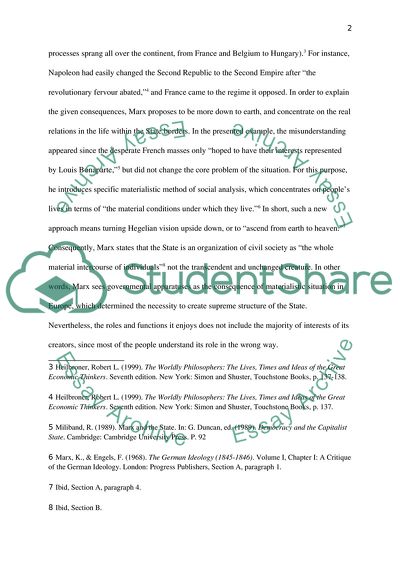Cite this document
(The Analysis of the Way Marx's Characterizes the State Coursework Example | Topics and Well Written Essays - 2000 words, n.d.)
The Analysis of the Way Marx's Characterizes the State Coursework Example | Topics and Well Written Essays - 2000 words. https://studentshare.org/social-science/1868949-final-course-essay
The Analysis of the Way Marx's Characterizes the State Coursework Example | Topics and Well Written Essays - 2000 words. https://studentshare.org/social-science/1868949-final-course-essay
(The Analysis of the Way Marx'S Characterizes the State Coursework Example | Topics and Well Written Essays - 2000 Words)
The Analysis of the Way Marx'S Characterizes the State Coursework Example | Topics and Well Written Essays - 2000 Words. https://studentshare.org/social-science/1868949-final-course-essay.
The Analysis of the Way Marx'S Characterizes the State Coursework Example | Topics and Well Written Essays - 2000 Words. https://studentshare.org/social-science/1868949-final-course-essay.
“The Analysis of the Way Marx'S Characterizes the State Coursework Example | Topics and Well Written Essays - 2000 Words”. https://studentshare.org/social-science/1868949-final-course-essay.


